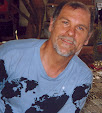A lot of victims of the genocide are dead... They suffered a horrible death. Madness was ruling in April 1994. Up to one million people lost their lives. April is known here as ‘the month of remembrance’. People mourn their lost loved ones; they vouch that it won’t happen again.
There is a second category of victims of the genocide: the physically injured, of course and also the emotionally injured ones. The vast majority of survivors have moved on with their lives and have shown incredible signs of resilience and forgiveness. The setting of ‘gacaca courts’ (a local, traditional, community-based system of judging people, of solving conflicts) that was eventually introduced to replace the more ‘legalistic’, western penal system, was very much instrumental to reconciliation between the two artificially constructed ethnic groups.
I have come across two of these injured victims of the genocide. They both spent twelve years of their lives in jail, waiting for their judgement to come up, but were eventually handed in to the gacaca court – which found them innocent and completely cleared of any wrong doing.
Both have been seriously emotionally injured. You do not spend twelve years of your life in a African prison, waiting for justice to make its call, knowing deep inside that you are innocent, without developing some emotional scar. Yet one of them has bounced back and is now deeply involved in selfless community work – striving to help children receive the best education possible. There is depth in his eyes, strength and determination in his actions and an overall aura of wisdom about him. I want to get to know him better, to be inspired by him.
The other, in his early forties today has not recovered. A fellow inmate – a well known artist, taught him how to play the guitar. He is at his best when he plays his guitar and sings the songs he wrote in jail. The rest of the time, he seems lost. He was married when he was taken to jail and he had a young son. Twelve years later, when he was set free, he found out that his wife had remarried and he had no home to come back to. He went back to live with his parents. You can read in his eyes that he has not found another purpose in his life. There is a mismatch between what he says he should do to get back on his feet and what he actually does. He talks about going to university and study commerce, about perfecting his English, which is quite good already (all self-taught!) but he ends up going drinking with his mates. He would like to make some money by having a ‘taxi-moto’ business in the area, but is unable to meet the repayment of his loan and has the motorbike taken away from him. Lately he has been talking about buying some bees and producing honey (the honey around these hills is fantastic!). He is talking about getting his own place to live in about three months’ time. ‘That would be wonderful, go for it!”



No comments:
Post a Comment